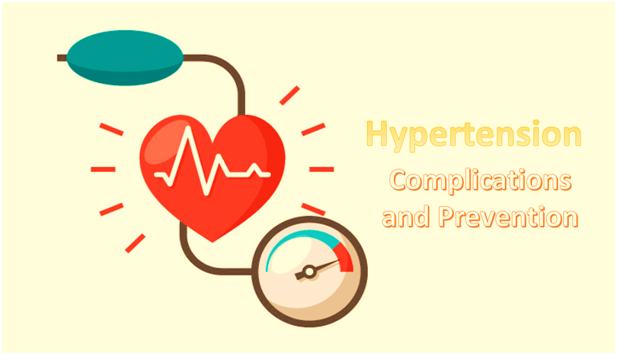
Blood pressure can be simply defined as the pressure of the blood on artery walls while the heart pumps blood to different parts of the body. Stress and anxiety cause a rise in blood pressure and high blood pressure, also known as hypertension, majorly proves unhealthy for the body by causing damage to blood vessels and organs like heart, brain, and kidneys. Recently with the ongoing COVID19 pandemic, hypertension poses a high risk of coronavirus disease and thus it is important to be aware of such conditions and prevention measures.
Symptoms of High Blood Pressure?
The general symptoms of severe hypertension can include: Headaches, Chest pain, Nosebleeding, Fatigue and Dizziness, Shortness of breath, and Blurred vision.
Types of hypertension?
Hypertension can be either primary or secondary. Let us discuss them in brief:
- Primary Hypertension
Genetics: People might be genetically predisposed to high blood pressure.
Physical metabolic changes in the body: Metabolic changes in the body might cause changes in the biochemical balance, leading to an increase in blood pressure.
Environment and lifestyle: A lack of exercise and physical activities might lead to heart problems. Poor dietary habits add to this risk and can lead to hypertension risks.
- Secondary Hypertension
Complications of High Blood Pressure?
- Ventricular hypertrophy due to high blood pressure can lead to heart failure.
- Hardening and thickening of the arteries can lead to stroke or heart attack.
- Hypertension can lead to weakening and bulging of blood vessels, thus forming an aneurysm.
- Metabolic defects in the body might lead to diabetes and kidney defects.
- Memory loss or dysfunctionality of brain regions related to balance due to loss of blood flow.
- Blood vessel damage might lead to vision loss or blurring.
Once you have done a blood pressure diagnosis, let’s check which is the hypertensive range:
- Normal
Diastolic mm Hg less than 80
- Elevated
Diastolic mm Hg: less than 80
- Hypertension 1st Stage
Diastolic mm Hg: 80 – 89
- Hypertension 2nd Stage
Diastolic mm Hg: 90 or higher
- Hypertensive Critical
Diastolic mm Hg: Higher than 120
Tips to Control High Blood Pressure?
- Eat foods that are lower in fat, salt, and calories. Low-fat dairy, fresh vegetables and fruits, whole grains, and fish proteins are recommended.
- Maintain a healthy body by stabilizing your weight. A heart-healthy diet and exercises help in this process.
- Meditation and exercise can help to reduce stress and anxiety. This lowers the blood pressure and keeps the cardiovascular system healthy.
- Limit the amount of smoking and alcohol consumption. Also, avoid illegal drug abuse of any sort.
- Smile and help others. A happy you is a healthy you.
Book PPE Kit: Advancells PPE Kit







0 comments:
Post a Comment